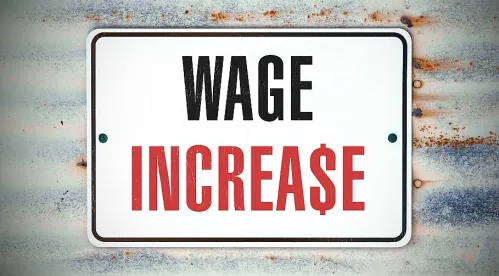It is a dilemma that many employers have faced. You discover that your company violated federal law on minimum wage or overtime payments. You want to fix the problem, but you do not know how to do so without prompting employee demand letters, a Department of Labor audit or, perhaps worst, a class action lawsuit. The Department of Labor’s Wage and Hour Division (WHD) has set out to provide employers a way to quickly resolve these issues and avoid litigation…potentially.
The WHD recently announced a new nationwide pilot program called the Payroll Audit Independent Determination (PAID) program. This new program aims to facilitate timely resolution of potential overtime and minimum wage violations under federal law without litigation and to improve employers’ compliance with wage and hour laws.
While full details of the PAID program have yet to be rolled out, the basic premise is as follows:
- employer reviews WHD compliance materials;
- employer conducts an audit of its compensation practices and identifies non-compliant policies or potential claims it would like to proactively resolve;
- employer calculates the amount of back wages it believes are owed to affected employees;
- employer contacts WHD and submits its calculations and all required documents. These include, among other items, an explanation of the scope of the potential violations and a certification that the employer is not litigating the compensation practices at issue in court, arbitration, or otherwise;
- WHD evaluates the information and confirms the back wages;
- WHD issues a summary of unpaid wages and forms describing the settlement terms for each employee, which employees may sign to receive payment; and
- employer issues prompt payment.
A chief benefit of the PAID program is that employers who self-report and cooperate with WHD to remedy violations will not be required to pay liquidated damages or civil monetary penalties. They will also avoid the costs of litigation for all employees who accept the payment and sign a release.
Sounds like a great deal for employers, right? Perhaps, but there are definite risks and potential downsides for employers that seek to participate in the program. First, employees do not need to accept the payment and sign the release, which would leave the employer open to litigation. Second, even if the employee does accept the payment, the release cannot be a broad release of wage and hour claims; it must be limited to only the potential violations for which the employer pays back wages, meaning that the release will not apply to any state law claims. Third, WHD does not waive its right to conduct any future investigations of the employer. Finally, as of now, there is no protection for the data and documents submitted to WHD from a Freedom of Information Act request, which means that the information could be available to employees who do not sign the release (or their attorneys) and want to pursue litigation.
Potential drawbacks aside, though, the PAID program may certainly prove to be a viable option for employers to rectify federal wage and hour violations while limiting their risk to pay additional damages and costs of litigation. For example, if the amounts at issue for individual employees are relatively low, employees may be more likely to accept the payment and sign the release. It is important to involve outside legal counsel in the process to determine if the PAID program is a good fit for your company and to oversee and guide any internal audit.
WHD plans to make the PAID program available to any employer covered by the Fair Labor Standards Act that is not already being investigated by WHD and is not litigating in court, arbitration, or otherwise the pay practices at issue. WHD will implement this pilot program nationwide for approximately six months, at the end of which WHD will evaluate the effectiveness of the pilot program, as well as potential modifications to the program, to determine next steps. If you want to stay up to date on new developments and learn when the PAID program will be rolled out for employers, you can sign up for WHD Key News Alerts.




 />i
/>i

